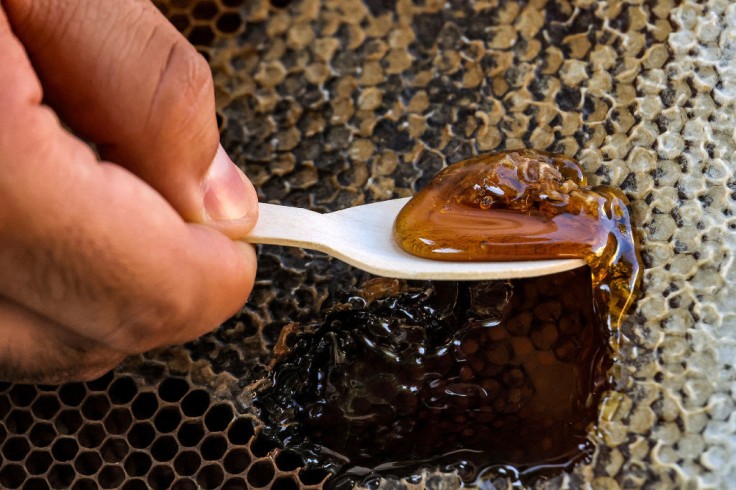
New parents and caregivers of babies are often told not to feed them honey due to the associated health risks.
Allowing your babies to taste different flavors and dishes might be one of the most interesting parts of these early stages. Despite being a natural sweetener, babies under the age of 1 cannot consume honey.
Parents and caregivers handling newborns are usually advised by medical professionals to avoid honey before the age of 1 due to the risks of infant botulism.
Botulism is a condition caused by the Clostridium bacteria commonly found in honey. This illness can lead to muscle weakness, indicated by symptoms such as difficulty sucking, weak crying, constipation, and reduced muscle tone.
Understanding the Health Risks of Infant Botulism
To prevent infant botulism, parents should refrain from giving honey or honey-containing processed foods, like honey graham crackers, until after the child's first birthday.
While light and dark corn syrups may also harbor botulism-causing bacteria, their direct link to the illness remains unconfirmed. Consulting a doctor before introducing these syrups to a baby is advisable.
Infant botulism manifests distinct symptoms, typically emerging 18-36 hours after exposure to the toxin.
These symptoms encompass constipation, weakened muscle movements leading to floppiness and head control issues, a feeble cry, irritability, drooling, drooping eyelids, fatigue, feeding difficulties, and in severe cases, paralysis.
Prompt medical attention is crucial if a baby exhibits any of these symptoms, since botulism can pose life-threatening risks. Although harmless to adults due to the toxin's lack of release into the body, C.
Botulinum spores in honey are concerning for infants. The Cleveland Clinic emphasizes that while ingesting these spores doesn't trigger botulism in healthy older individuals, infants under 12 months are susceptible.
Therefore, it's recommended to withhold honey consumption until a child reaches one year of age. Older children and adults can safely enjoy honey without such concerns.
Why Babies Shouldn't Eat Honey
It's often mentioned that the risk of botulism is quite low, advising parents to monitor their infant's symptoms closely.
If any of the mentioned symptoms arise, especially constipation or difficulties with swallowing or head control, it's crucial to contact a doctor promptly. Early detection significantly improves the effectiveness of treatment.
After the age of 12 months, honey is believed to offer various nutritional advantages for infants. It contains trace elements such as enzymes, amino acids, minerals, and antioxidants, along with modest amounts of B vitamins and vitamin C.
The nutritional composition of honey varies depending on its sources, with more than 320 varieties available.
During the first months to a year of life, infants are still developing their immune systems and are susceptible to certain pathogens.
Among these is C. Botulinum spores, commonly known as botulism toxin, can be found in honey. While adults can typically manage this toxin, infants can develop botulism, a serious condition requiring immediate attention.
Honey should be avoided for infants under one year old due to the risk of infant botulism, a serious and potentially life-threatening condition.
Parents can prevent this illness by steering clear of honey and honey-containing foods for their babies.
After their first birthday, children can safely enjoy honey without the associated risks, thanks to their mature digestive systems. Always consult with healthcare providers for the best advice on infant nutrition and safety.
Related Article: Top 10 Best Water Activities for Kids to Enjoy This Summer